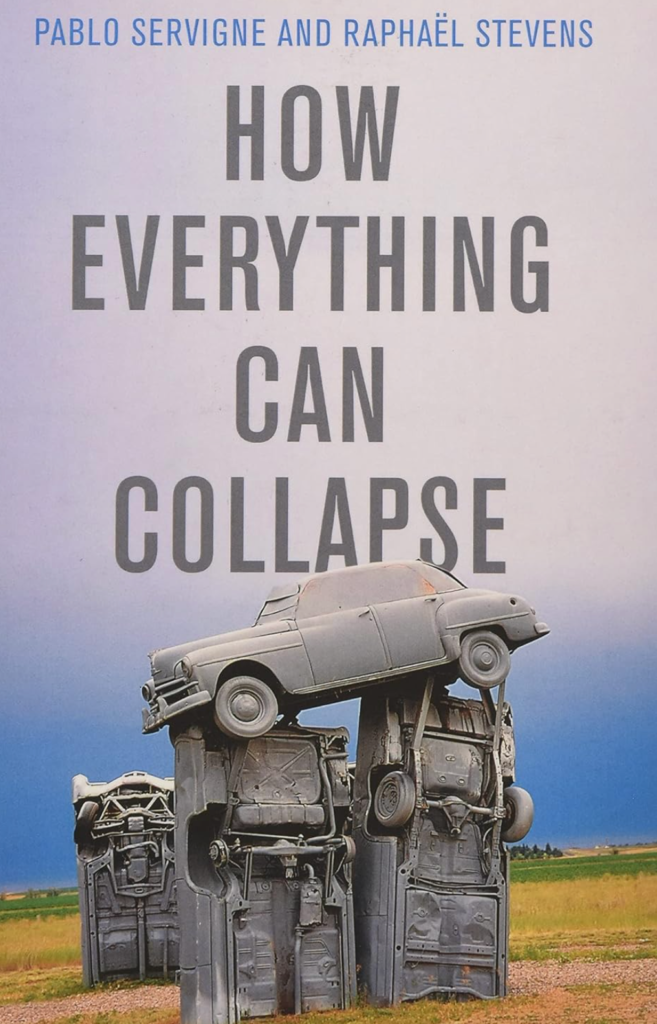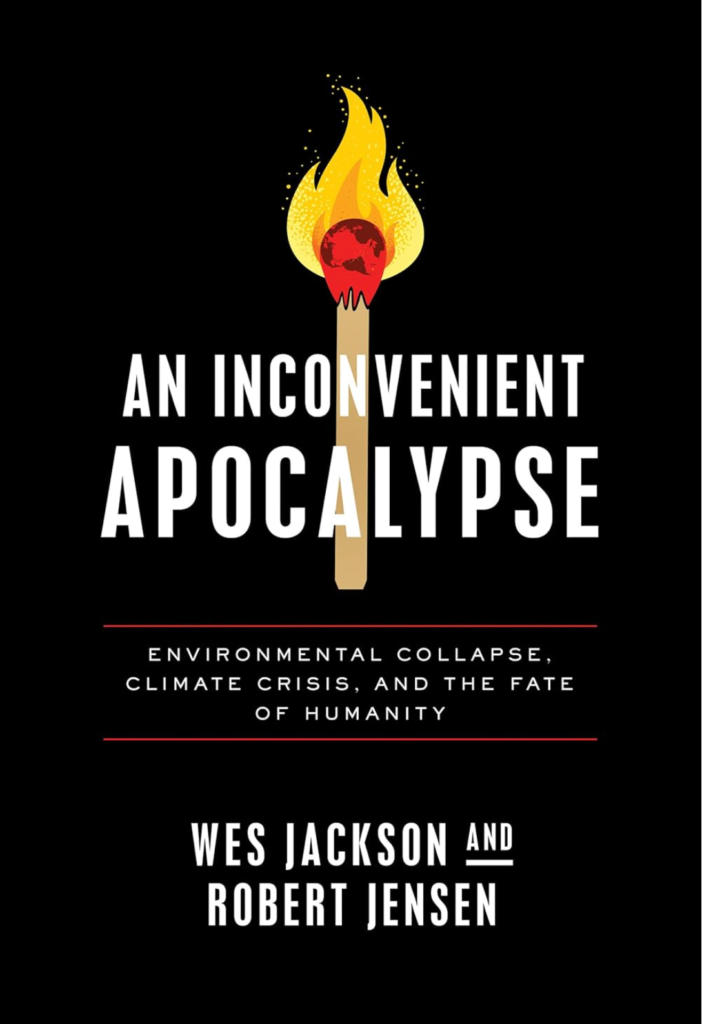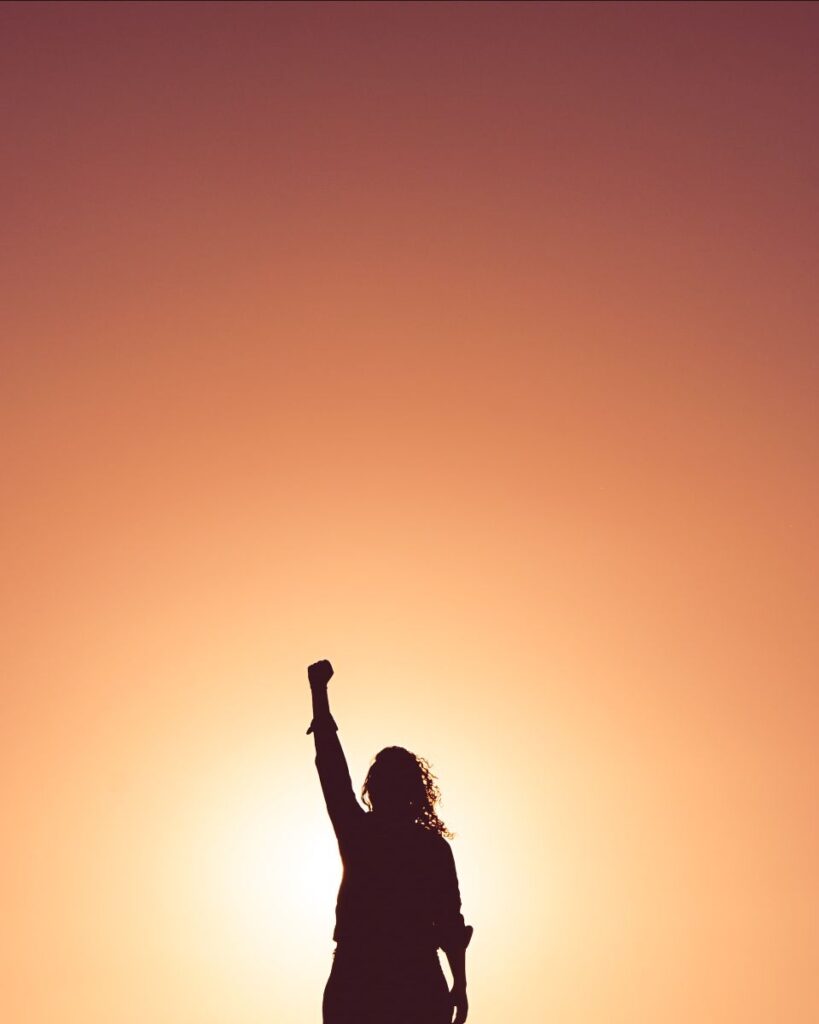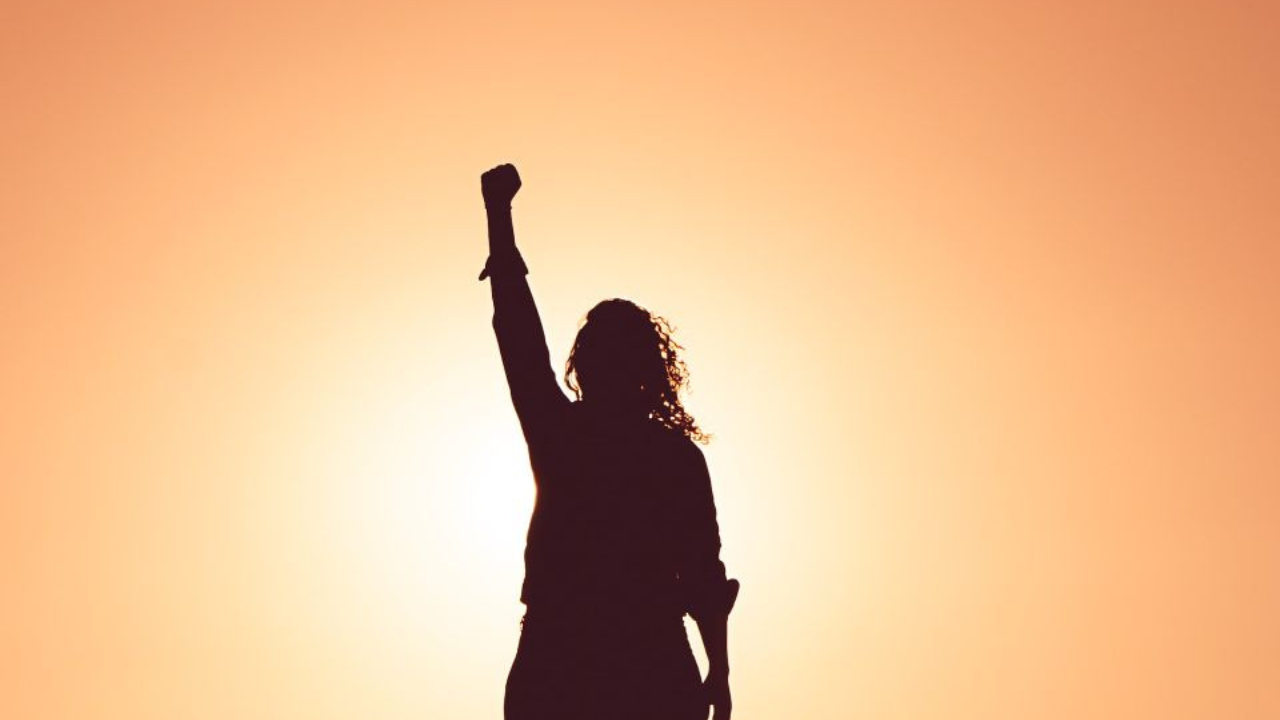 There’s no denying it, Collapse is here. Modern Industrial Civilization is coming to an end. All the structures and systems that have supported our lives are disintegrating in real time.
There’s no denying it, Collapse is here. Modern Industrial Civilization is coming to an end. All the structures and systems that have supported our lives are disintegrating in real time.
International law – dissolving.
Democratic governments – dissolving.
Health care – dissolving.
Legal systems – dissolving.
Education systems – dissolving.
The social and civic fabric – dissolving.
The Enlightenment (and Silicon Valley) shibboleth that technology always brings progress and improvement – dissolving. Need I go on? (OK, there is World War III which I believe has already started.)
Though systems are collapsing at different times, different rates, and at different magnitudes, climate change and carbon extraction will insure that all systems will eventually be stressed to collapse. If you need further convincing, I recommend starting with the bad news below, and please see my accompanying synopses.

Collapse | How Societies Choose to Fail or Survive | Jared Diamond
This is the book most newcomers to the subject start with. Though it treads very lightly on comparisons to today, it makes the basic dynamics clear on what exact conditions predicate Collapse so that anyone with a thinking brain can draw those comparisons themselves.
 How Everything Can Collapse | Pablo Servigne and Raphaël Stevens
How Everything Can Collapse | Pablo Servigne and Raphaël Stevens
This is the book that pretty well cinches it for me, despite the somewhat defensive and occasionally clunky prose. (Maybe it’s the translation?) “Today… it is the utopians who believe that everything can continue as before, while realists put their energy into making a transition and building local resilience. Collapse is the horizon of our generation. But collapse is not the end – it’s the beginning of our future.”
 The Watchman’s Rattle | A Radical New Theory of Collapse | Rebecca D. Costa
The Watchman’s Rattle | A Radical New Theory of Collapse | Rebecca D. Costa
A clear and cogent analysis of the super-memes that drive contemporary thinking that pretty much guarantee the collapse of worldwide systems, while offering practical solutions for countermanding them.
 Doppelganger | A Trip into the Mirror World | Naomi Klein
Doppelganger | A Trip into the Mirror World | Naomi Klein
Though Klein only directly addresses Collapse near the end, the book’s entire journey explains in vivid detail what it already feels like for us to be transiting through the Looking Glass; all the realities we took to be unending are dissolving.

Am inconvenient Apocalypse | Environmental Collapse, Climate Crisis, and the Fate of Humanity | Wes Jackson and Robert Jensen
This might be the clearest, simplest, and most straightforward book of them all. Jensen and Jackson tell it like it is. “Humanity’s future will be defined not by expansion but by contraction.” That means not only the economy but the human population. “The climate crisis has already progressed beyond simple or non-disruptive solutions. The end result will be apocalyptic; the only question now is how bad it will be.”
The books above are only the tip of the iceberg. (Oh, and don’t forget Daniel Quinn’s books.) Every day I read news stories that have only one underlying theme – Collapse. Like this recent one about billionaires designing burning moats to protect them from the hungry hordes destined to descend on their massive fortified bunkers in the dystopia to come. Of course, there’s plenty of other resources reinforcing the same basic message, like this documentary from 2009 which first introduced me to the term and this podcast where a scientist explains how humans could likely be extinct by the end of the century. As Wes Jackson says, “We have to down power.” Though very few environmental films will dare speak the truth about Collapse, ie., that it’s already here, Planet of the Humans at least has the courage to point out that much of today’s environmental movement is in bed with some of the huge economic interests already creating climate change.
 Even though the idea of Collapse has largely been off limits for mainstream society – the dirty secret that no one dare utter – what it is we can do to minimize its impact in our lives and maintain equilibrium, even joy in the everyday, is no secret at all. It’s employing all the wholesome strategies we’ve been told about for years. Meditation and spiritual practice, putting the collective at the center of our lives, doing growth work and shadow work. Above all, fortifying cooperative relationships with everyone in our various communities: geographic ones, yes, but all of our social, religious, and community networks, both physical and cyber. We need to combine those webs of support with as much self-sufficiency as we can and think through provisions for all the basics: food, water, shelter, and energy. Perhaps most importantly, we have to keep doing whatever we’re doing to make a positive difference in the world. I know I am.
Even though the idea of Collapse has largely been off limits for mainstream society – the dirty secret that no one dare utter – what it is we can do to minimize its impact in our lives and maintain equilibrium, even joy in the everyday, is no secret at all. It’s employing all the wholesome strategies we’ve been told about for years. Meditation and spiritual practice, putting the collective at the center of our lives, doing growth work and shadow work. Above all, fortifying cooperative relationships with everyone in our various communities: geographic ones, yes, but all of our social, religious, and community networks, both physical and cyber. We need to combine those webs of support with as much self-sufficiency as we can and think through provisions for all the basics: food, water, shelter, and energy. Perhaps most importantly, we have to keep doing whatever we’re doing to make a positive difference in the world. I know I am.

